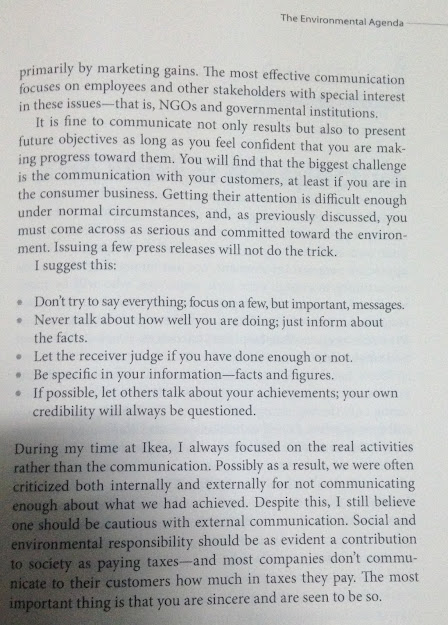For many who love IKEA and work at IKEA adoring its environmental efforts or collaboration with UNICEF, there is always the dark side that is not as commonly known - that is IKEA's parent company is a non profit and there are questions about how much tax it is paying or duly paying.
Started with this Economist Article: https://www.economist.com/business/2006/05/11/flat-pack-accounting, and finally made it into Singapore online articles here this year: https://blog.seedly.sg/ikea-singapore-charity/
Here is how Anders Dahlvig explains it:
Perhaps as Anders put it:
- Such practices may once be perfectly acceptable decades ago but maybe less so now.
- More importantly, all these that IKEA has done is perfectly LEGAL.
- Perhaps, what is acceptable now is to be more transparent with it. I do think coming to 10 years after the publish of this book, IKEA is becoming more transparent with its taxes. ..
This reminds me about the ongoing 2020 Singapore Parliament Debates about Foreign Talents. As Pritam Singh says, sometime we just need more data to have a meaningful discussion. Of course, compare the glowing admiration given to IKEA as compared to adoration given to individuals like Warren Buffett who openly asked to be taxed more, or Patagonia who willing pays a 1% tax for the Planet.
When I first joined IKEA, the top environmental effort told to me by Shikin was that our wooden products have no formaldehyde - it is apparently catalyzed by Japan.
When I was at IKEA, there is always this remark that "We are doing many good things, we are not communicating about it enough!" And that's the issue as Anders put it below:
- Communication with Customers is the hardest because getting their attention is hard enough. For these specific environmental issues, only employees and stakeholders with special interests will be interested.
It is true too that:
- IKEA usually only talks about things they have done and if we do talk about things in the future - it is always something with a target that we are confident of reaching.
- When external stakeholders see the employees of the company act in accordance with the values they profess, they are more confident that the company means what it says and that environmental commitments are just some vague big lines of words. Among the limited companies I have worked for, IKEA is for me the company that lives it values most voraciously in the everyday life.
Last but not least, it's true - people coming form outside of IKEA has trouble working there especially if they enter as management. They will not understand why you need to work on the floor, help on busy days etc...
IKEA focused on growing its customer base even if it meant in the short run, sacrificing its profit margins...










No comments:
Post a Comment